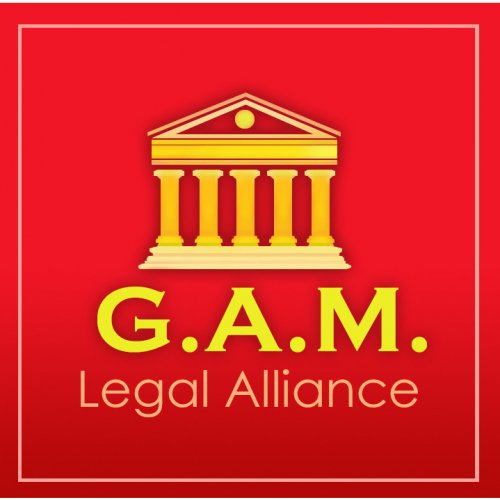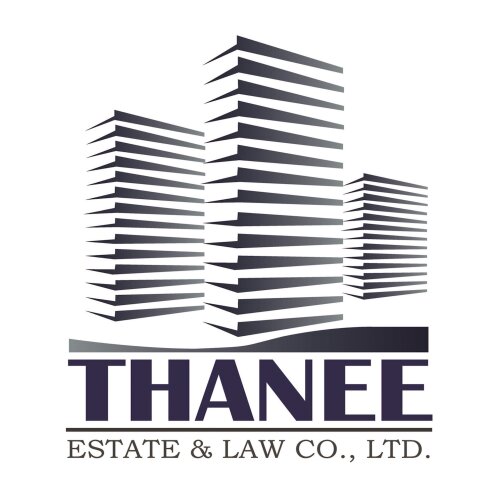Best Foreclosure Lawyers in Thailand
Share your needs with us, get contacted by law firms.
Free. Takes 2 min.
Free Guide to Hiring a Real Estate Lawyer
Or refine your search by selecting a city:
List of the best lawyers in Thailand
Legal guides written by SIAM LEGAL INTERNATIONAL:
- Defamation Laws in Thailand: Criminal Charges and Civil Suits
- The State of Thailand’s Long-Term Resident (LTR) Visa Program in 2025
- The Penalties Of Not Filing Your Income Tax Return As A Foreigner In Thailand
About Foreclosure Law in Thailand
Foreclosure in Thailand is a legal process through which a lender attempts to recover the balance of a loan from a borrower who has stopped making payments. This is done by forcing the sale of the asset used as collateral for the loan. With economic fluctuations and changing real estate dynamics, foreclosure has become a significant aspect of property law in Thailand. It involves a complex legal framework that includes court processes, banking regulations, and property laws.
Why You May Need a Lawyer
There are several situations where seeking legal advice on foreclosure in Thailand is prudent:
- If you are a homeowner facing the risk of losing your property due to loan default, professional legal advice can help you understand your rights and options.
- Lenders or banks may need legal assistance to navigate foreclosure proceedings to ensure compliance with Thai laws.
- Potential buyers looking to purchase foreclosed properties may require guidance to understand the legal implications and procedures involved.
- Landlords and tenants might also deal with foreclosure issues related to rented properties, necessitating legal counsel.
Consulting with a lawyer can help you understand the foreclosure process, mediate negotiations, and represent your interests in court.
Local Laws Overview
Key aspects of foreclosure laws in Thailand involve several steps:
- The creditor must notify the borrower of the default and provide a period for resolving the issue, often stipulated in the mortgage agreement.
- If the borrower fails to rectify the default, the creditor can initiate foreclosure proceedings through the civil courts.
- Upon court approval, the property may be auctioned off, and proceeds from the sale are used to settle the outstanding debt.
- Thai law dictates that any excess from the sale, after settling the debt, should be returned to the borrower.
Understanding these regulations is crucial for anyone involved in a foreclosure process, highlighting the importance of professional legal consultation.
Frequently Asked Questions
What exactly is foreclosure in Thailand?
Foreclosure is a legal process by which lenders can reclaim property used as collateral for a loan when the borrower defaults.
How long does the foreclosure process take in Thailand?
The foreclosure process can vary in duration, typically taking several months to over a year, depending on court schedules and specific circumstances.
Can foreclosure be avoided in Thailand?
Foreclosure can sometimes be avoided by negotiating with the lender or refinancing the loan. Legal advice can also provide alternative solutions.
What happens to properties bought during foreclosure auctions?
Properties bought during foreclosure auctions come with risks, such as unknown liabilities or ongoing disputes. Legal due diligence is crucial before purchase.
Are there any protections for borrowers in Thai foreclosure law?
Yes, the borrower must be notified of the default, and there should be an opportunity for resolution before foreclosure proceedings begin.
Is it possible to regain my property after it has been foreclosed?
Once a property is foreclosed and sold, regaining ownership is typically not possible. However, consulting a lawyer can offer possible recourse.
Can deficiency judgments be pursued in Thailand?
Yes, lenders may pursue deficiency judgments if the foreclosure sale does not cover the outstanding debt.
What rights do tenants have in a foreclosure situation?
Tenants’ rights depend on their lease agreements. Seeking legal advice is crucial to understanding their standings post-foreclosure.
Is a lawyer necessary for buying foreclosed properties?
While not mandatory, a lawyer's assistance is highly advisable to navigate the legal intricacies and ensure a sound investment.
What are the steps a borrower should take when facing foreclosure?
Borrowers should immediately seek legal counsel, review their rights, negotiate with lenders, and consider all potential solutions.
Additional Resources
For further assistance on foreclosure-related issues, you can consider reaching out to:
- The Legal Aid Center in Thailand for free or low-cost assistance.
- The Ministry of Justice for information on consumer rights and foreclosure laws.
- Bank of Thailand for understanding the lenders’ perspectives and regulations.
Next Steps
If you need legal assistance with foreclosure, it is advisable to:
- Consult with a qualified Thai lawyer specializing in property law to explore your legal options.
- Gather all relevant documentation related to your property and loan agreements to present a comprehensive case to your lawyer.
- Consider mediation or negotiation strategies as advised by your legal advisor to potentially settle the matter out of court.
Taking informed steps early can significantly influence the outcome of foreclosure situations.
Lawzana helps you find the best lawyers and law firms in Thailand through a curated and pre-screened list of qualified legal professionals. Our platform offers rankings and detailed profiles of attorneys and law firms, allowing you to compare based on practice areas, including Foreclosure, experience, and client feedback.
Each profile includes a description of the firm's areas of practice, client reviews, team members and partners, year of establishment, spoken languages, office locations, contact information, social media presence, and any published articles or resources. Most firms on our platform speak English and are experienced in both local and international legal matters.
Get a quote from top-rated law firms in Thailand — quickly, securely, and without unnecessary hassle.
Disclaimer:
The information provided on this page is for general informational purposes only and does not constitute legal advice. While we strive to ensure the accuracy and relevance of the content, legal information may change over time, and interpretations of the law can vary. You should always consult with a qualified legal professional for advice specific to your situation.
We disclaim all liability for actions taken or not taken based on the content of this page. If you believe any information is incorrect or outdated, please contact us, and we will review and update it where appropriate.
Browse foreclosure law firms by city in Thailand
Refine your search by selecting a city.

















